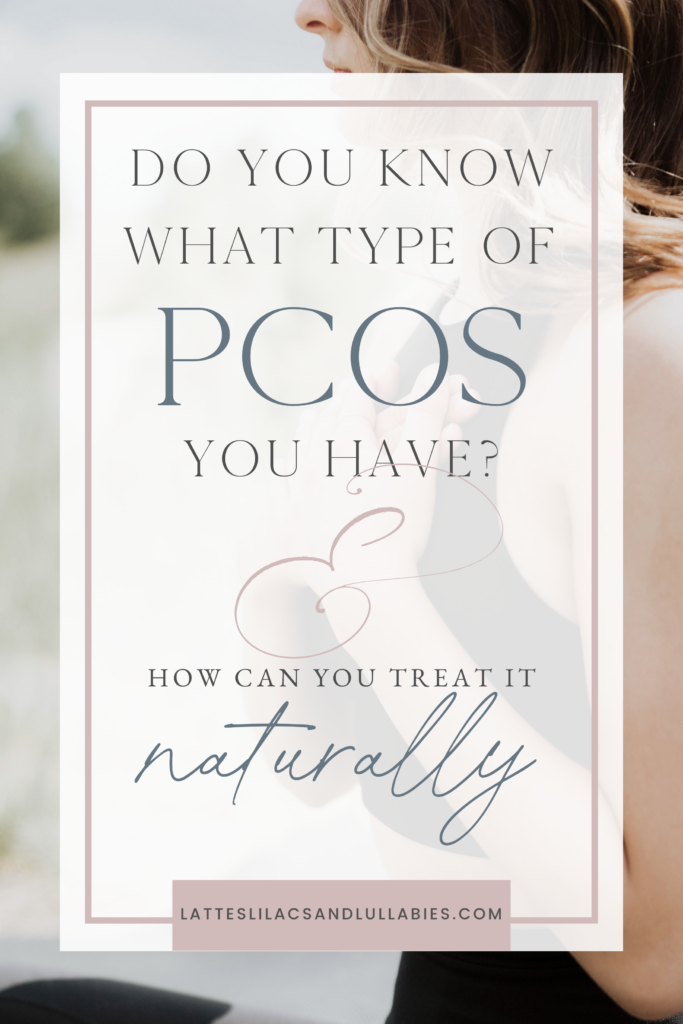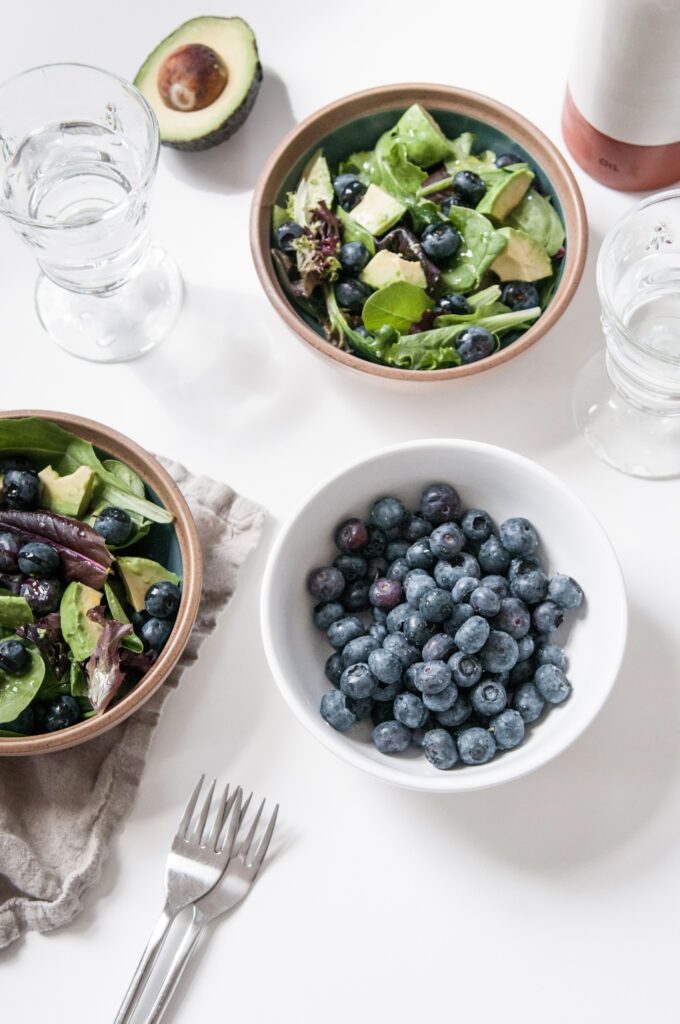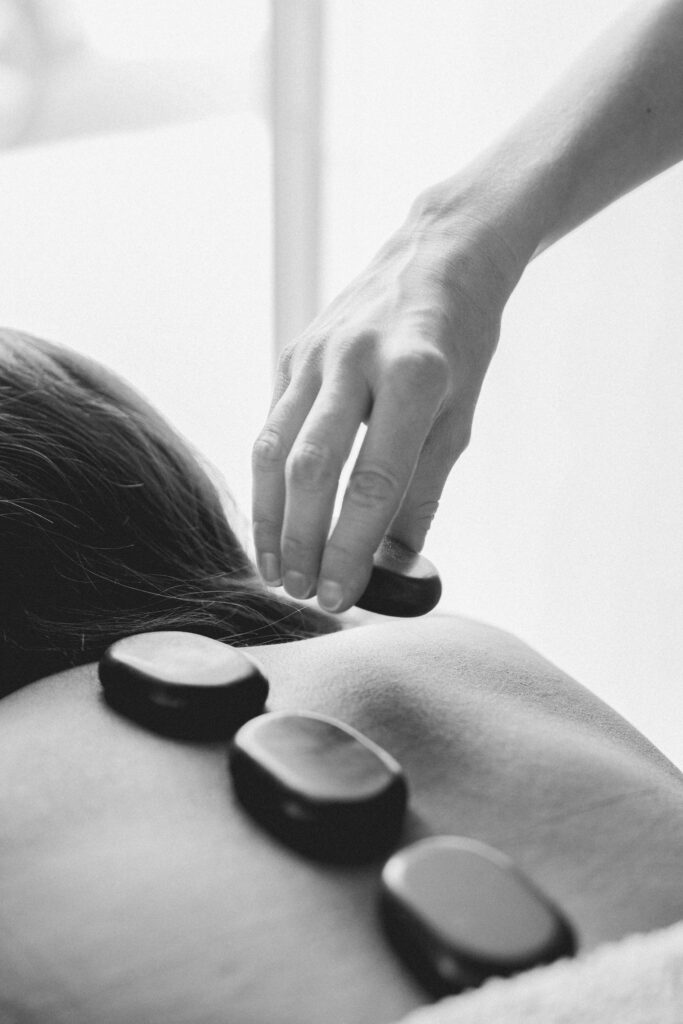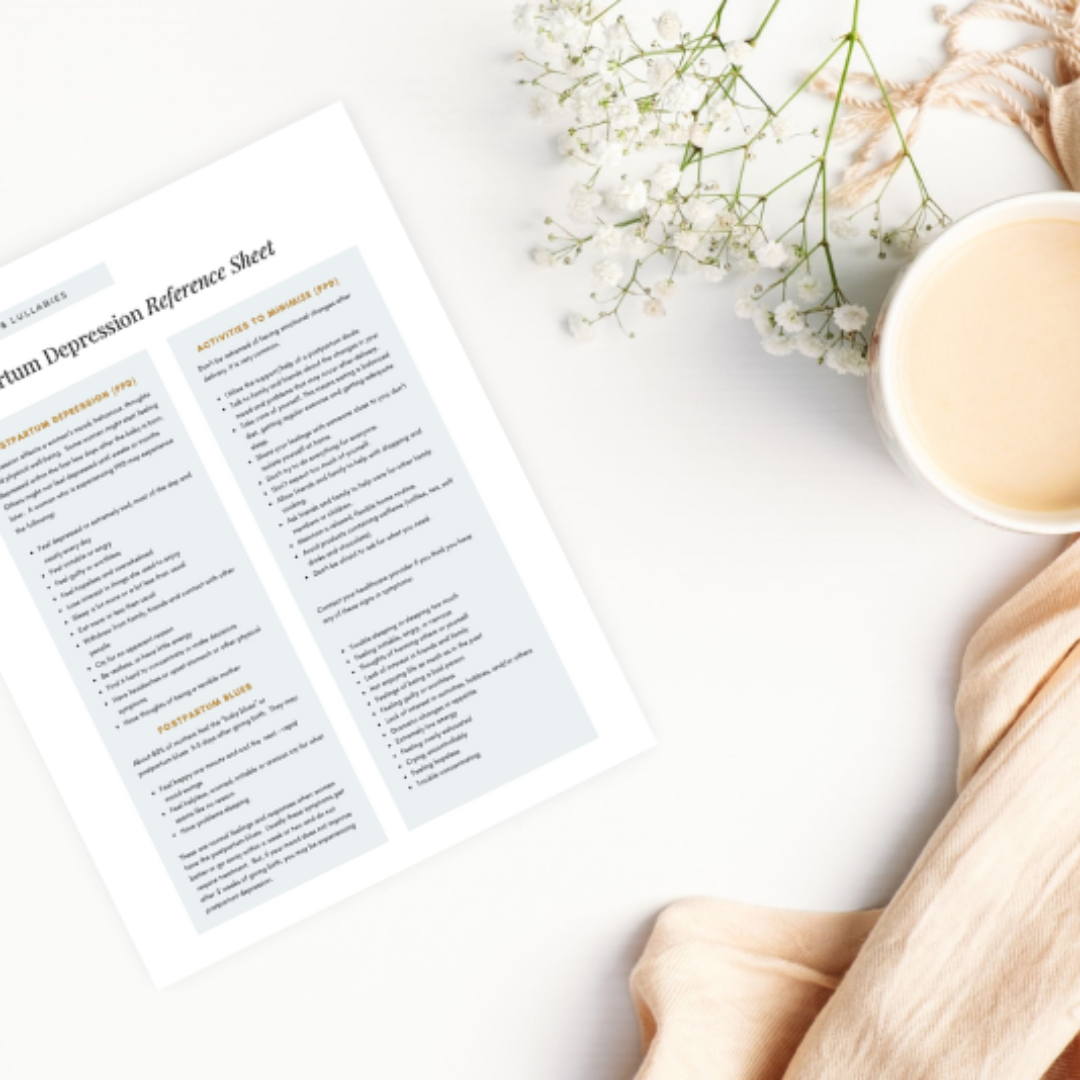Learning how to treat your PCOS and take care of your body is the first step is achieving remission and getting your life back. Did you know that there are four different types of PCOS and each type has their own specific treatment plan? Today you’ll learn the signs and symptoms of each type, how to get a proper diagnosis, and then how to treat that type of PCOS naturally. You can get healthy and live a wonderful life with PCOS once you understand the best treatment plans and which one (or more) will work for you.
{We are a participant in the Amazon Services LLC Associates Program, an affiliate advertising program designed to provide a means for us to earn fees by linking to Amazon.com and affiliated sites. To learn more about affiliate links, click here!}

The Four Main Causes Of PCOS:
Insulin-Resistance
70% of women with PCOS are found to have insulin resistance. Insulin is a hormone that stores sugar in our cells to be burned for energy later. When our cells are resistant to it, insulin floats around in our blood stream and stimulates androgens such as high testosterone, which can lead to symptoms that include cravings for sweets, fatigue, and increased urination. And, since women with PCOS are at high risk for developing diabetes, it’s extremely important to learn how to treat your insulin resistance. Insulin Resistant type PCOS is often time diagnosed with lab work that includes a Fasting Glucose and Hemoglobin A1C, some of which you can test yourself at home.
Adrenal Fatigue
When my doctor told me I had “adrenal fatigue” I had no idea what she was talking about. Little did I know that running myself ragged had actually led to this type of PCOS and explained why I was dealing with irregular periods, hair loss, acne, fatigue, and weight gain. You see, our bodies are unable to determine what type of stress we’re experiencing. Sometimes, it overcompensates and thinks that working long hours, running a marathon, planning a wedding, etc is the same as fighting for our life. When this happens, the brain signals to the adrenal gland to begin producing more stress hormones like adrenaline and cortisol to basically put us in that fight or flight mode. This type of PCOS can be detectible in the blood by testing cortisol levels as well as an androgen called DHEA. Treatment for Adrenal Fatigue type PCOS involves a lot of self-care which we’ll talk about later.
Inflammation
Unfortunately, when you’re dealing with any type of PCOS, you’re also likely dealing with inflammation. This type of PCOS can be caused by inflammatory foods and poor gut health, increased stress, and environmental toxins. And, studies have shown that increased inflammation in the body can cause insulin resistance and increased androgens that can literally stop you from ovulating which is a big problem if you’re trying to get pregnant. Inflammatory PCOS is often diagnosed by labs that include C-Reactive Protein and White Blood Cell count.
Thyroid Disorder
Thyroid Disorder is another cause of PCOS that is often diagnosed with one of the others because as your body deals with insulin resistance or inflammation for a period of time your thyroid get tired and begins to weaken. Symptoms of thyroid disorder often mimic other types of PCOS, so it’s important to get a full thyroid panel to rule out this complication that can make your PCOS worse.
How To Treat Insulin Resistance
- Metformin/Ovasitol– Often times when you’re diagnosed with insulin resistance, your Dr. will prescribe a medication called Metformin that is typically used to treat people with diabetes. This medication can help reverse your insulin resistance and may even help you begin ovulating again. It does come with some uncomfortable side effects for many women, particularly gastrointestinal issues, that make it nearly impossible to tolerate for some people. Ovasitol is a natural alternative to Metformin that also treats insulin resistance and doesn’t require a prescription.
- Make Peace With Food & Diet Changes– It’s also important to discuss diet when it comes to insulin resistance especially since this type of PCOS can lead to uncontrollable weight gain. The most important thing I’ve learned over the years of dealing with insulin resistance, is that it’s important to be kind to myself and make lifestyle changes that I can do consistently. So often we start extreme diets like keto, Whole30, or even intermittent fasting hoping to get the weight off quickly. But, honestly, yo yo dieting may actually make our insulin resistance worse. Instead, focus on eating a clean diet filled with lean meats, fruits, and vegetables and stay away from processed foods, and practice intuitive eating so that you can maintain your new healthy lifestyle. A program that helped me lose weight with PCOS was Noom. I loved it’s balanced approach, 1:1 coaching, community support, and lessons which tackled the mindset around eating and lifestyle change. It’s been the most effective online app that I’ve ever used.
- Eat 35-40g Of Protein At Breakfast– It’s important to start your day with a heart breakfast filled with lots of protein to help curb those cravings and keep you fuller for longer. My favorite go-to protein sources are eggs, turkey bacon, and organic chicken sausage.
- Reduce Sugar Intake– It is REALLY important to focus on reducing your sugar intake when you’re treating insulin resistance. Sugar just makes it worse and can lead to pre-diabetes which is exactly what we don’t want.
- Eat Plenty of Healthy Fats– Also, when it comes to your diet, fat is your friend. Healthy fats help support our hormones so go ahead and enjoy avocados, olive oil, and even butter or ghee.
- Discover Your Carbohydrate Tolerance– I thought I had to eat hardly any carbs in order to lose weight, and what I’ve discovered over the years is a very low carb diet not only make me not feel well it also stalled my weight loss. It’s a great idea to play around with your carb range by tracking your macros in an app like My Fitness Pal to help you find your “sweet spot”. I’ve found my carb tolerance to be under 150 but no lower than 70 in order for me to feel my best and also see a difference on the scale.

How To Treat Adrenal Fatigue
- Meditate Daily– Meditation can make such a difference in your health. It’s amazing the power that our mind has and how it all connects to our body. I love using the Calm app for meditations. Sometimes I just simply choose a background noise like waves or rain and picture myself in a favorite place we’ve visited. Even that is just enough to calm my mind and help me feel more grounded.
- Manage Stress– Believe it or not, we weren’t made to constantly run ourselves ragged. I use to wear exhaustion like a badge of honor until it almost broke me. Little did I know I was perpetuating my PCOS symptoms and actually making them worse by embracing a stress-filled busy lifestyle and never taking time to rest. Practicing self care is so important for women struggling with adrenal fatigue. Here ware some ways I enjoy practicing self care and taking time to rest and savor the moments that matter most- taking a hot bath or shower, having a spa day at home with fancy facial masks and non-toxic nail polish, game nights, movie nights, dates with my hubby, reading in the morning with my coffee, listening to music, watching old TV shows that I love (i.e. Gilmore Girls & Dr. Quinn), etc. Self care can look different for everyone. What are some ways you can take care of yourself today?
- Replace Caffeine– Unfortunately, this suggestion from my naturopathic doctor didn’t come with gleeful willingness. I begrudgingly agreed to start decreasing my caffeine, especially after she explained that caffeine can increase cortisol levels which exactly what we don’t want or need. I’ve learned to love drinking half caffeinito coffee from my Nespresso with a tasty frothy oat milk. From one Starbucks addict perhaps to another, if I can do it so can you. Trust me. And, sometimes I still treat myself to a Starbucks drink but it’s certainly not an everyday habit anymore.
- Consider CBD– As I’ve learned more and more about PCOS, I’ve discovered that we’re very likely to deal with depression &/or anxiety. CBD is now being suggested as a way to naturally treat anxiety and adrenal fatigue. Of course, speak with your doctors or healthcare providers before starting CBD, but it may be something worth looking into. Personally, I have not yet tried this treatment, but am currently looking at Equilibria as a potential source for CBD products I’d use in the near future.
- Get Outside– It’s true. Spending even just 15 minutes a day outside can greatly improve your mental health and help lower your adrenaline. Needs some ideas for ways to spend time outside? Don’t worry, I’ve got some ideas…Here are some ideas of things to do outside regularly:
- Go for a walk in your neighborhood
- Visit a local park
- Go to the beach, lake, or river
- Ride your bike or skate
- Do some yard work
- Take your pet outside
- Sit outside and listen to music
- Eat out on a restaurant’s patio
- Have a picnic with a friend
- Park your car farther away in a parking lot
- Play an outdoor game or sport with your children
- Enjoy your coffee or tea on your porch in the morning
- Go camping
- Take a hike
- Go kayaking or canoeing
- Go out on a boat
- Join a sports league
- Go to a farmers’ market
More Ways To Treat Adrenal Fatigue
- Set Aside 15 Minutes To Do Something You Love– Remember the days when you had hobbies? Maybe you still do, or perhaps you’re like me and your only hobbies include napping, drinking coffee, and binging the latest true crime show on Netflix. Nothing wrong with that, but what other things do you enjoy doing? Is there a skill or craft that’s always fascinated you? Is there something you’ve always wanted to learn how to do? Well, now’s the time. Let’s get out there and spend some time every day doing something creative that we love. This could be taking pictures, writing, putting together a jigsaw puzzle, baking up a new recipe, learning how to paint abstract art, or even taking a pottery class. Doing something that truly brings you happiness and rest for just 15 minutes a day can not only give you a boost mentally but also physically as you learn how to manage adrenal fatigue. In fact, I’m thinking of taking a painting class, learning to roller skate again since my niece really loves it right now (& to have a good excuse to get these rose gold skates), and maybe even learning how to play golf (I’d secretly like to be a registered professional mini-golfer which apparently is not hard to become…inspired by the summertime game show Holy Moly! Sounds like a great thing to add to my resume, don’t you think?).
- Connect With Others– I truly believe we weren’t meant to do this life alone. Community is so important to our well-being, but it can definitely be difficult to set aside time to go to dinner with friends or get out of the house for a date night. Can you make more space in your life for connection with those you love?
- Avoid Screens 2 Hours Before Bed– One thing we’re trying to implement in our house is putting our phones away in the evening so we can truly relax our minds and connect with each other. I mean, what good is if we’re “watching” say Survivor on TV but I have my laptop open writing blog posts, my phone sitting next to me pinging with text messages, and him across the room laughing at memes on his ipad. For one, we sure aren’t connecting with each other, we’re not enjoying one of our favorite TV shows together, and we certainly aren’t giving our brains the proper shut down it needs for a good night’s rest. Think about it. How much time to spend each day in front of or looking at screens. It’s probably a lot, right? Put away the phones, I-pads, and other devices, snuggle together on the couch or in bed, maybe watch a show or even better yet read or play a game. Give your brain and your eyes the break they need. Can I get an “amen” to that?
- Get A Good Amount of Rest– And, speaking of rest, it’s probably obvious but getting a good amount of rest is extremely important for all humans but especially those with PCOS. We just need more sleep. Of course this can difficult to do depending on what season your in in life, like if you have a newborn this might seem impossible. But, if you’re able too, make rest a priority. Make your bedroom a sanctuary. Buy some fancy sheets, wear cozy pajamas, diffuse essential oils, etc. Sleep is a needed necessity, not just a luxury or an after thought in your treatment plan.

How To Treat Inflammatory PCOS
- Focus On Gut-Health– I heard a doctor once say that “the gut is the mother of the reproductive system”. Our gut is vitally important is controlled so many things within our body. Often times women with PCOS have inflammation caused by leaky gut which was caused by things like inflammatory foods. We’ll talk about diet in a second, but another important part of the treatment of your gut health is to take a quality probiotic to replenish your gut with good bacteria. You can also heal your leaky gut by drinking bone broth everyday and taking collagen. So how do you know if you have leaky gut? Well, first is recognizing some of the common uncomfortable symptoms like diarrhea, bloating, fatigue, skin issues, decreased immune system, etc., perhaps doing a blood test to check for inflammation, and maybe even doing a stool test with your doctor to check to see how well you’re absorbing nutrients. But, another quick way to check and much less invasive, is to simply change your diet which we’ll talk about next.
- Try An Anti-Inflammatory Diet– It’s been studied and shown that eliminating inflammatory foods from your diet when you have PCOS can GREATLY decrease your symptoms and increase your quality of life. The foods to focus on eliminating would be sugar, gluten, dairy, and caffeine. Not only do these perpetuate worsening leaky gut, some even increase your adrenal fatigue and insulin resistance. They unfortunately are not our friends. I’ve been slowly transitioning to an anti-inflammatory diet by replacing items in our pantry with compliant foods on Thrive Market where I can easily filter products to leave out items containing gluten and dairy. I have read countless testimonials from women that have adopted this lifestyle and had great success with regaining regular cycles, decreasing their symptoms, losing weight, and even getting pregnant naturally. It’s definitely worth trying to see if you notice a change in your overall health.
- Enjoy An Anti-Oxidant Rich Smoothie Daily– Due to leaky gut, often times our bodies are starving for micronutrients like anti-oxidants that fight free radicals and omega 3 and other vitamins and minerals. Drinking a smoothie daily filled with greens, berries, chia seeds, etc. can really give you a healthy boost of these nutrients that will also help to support your fertility as well. My current favorite Anti-Oxidant Smoothie is: 1 cup of frozen berries, 1 cup of fresh organic spinach, 2 peeled & frozen halo seedless mandarins or 1 small frozen orange, 1/4 cup of frozen avocado chunks, 1 tbs of chia seeds, liquid collagen, 1-2 cups of water or dairy-alternative like almond milk. Blend on high until smooth.
- Reduce Toxin Exposure– It’s crazy to think that in the U.S. we still allow hormone-altering chemicals in many of our products that we put on our bodies or use in our homes. I’ve been on the hunt over the past year or so for some amazing clean, non-toxic alternatives and have found a few favorites. For our home, we’ve loved Dropps laundry and dishwasher pods, Force of Nature for natural cleaning (get 40% off with my code CLEANSAFE40), anything and everything on Grove Collaborative for tidying our home, Pura to scent our space without the harsh chemicals, and Thrive Market and Butcher Box to stock our pantry, fridge, and freezer with fresh organic produce and necessities in the kitchen. As far as beauty and hair products, I’ve fallen in love with Beauty Counter, Ilia, Dime, & Leilani products for makeup and skin care, and Function of Beauty which follows EU standards in their hair care products. All it took to motivate me was to read the book “It Starts With The Egg” and learn about how these everyday products can really effect our health, our fertility, and yes even our precious little eggs. It lit a fire under my backside and I swiftly began finding non-toxic alternatives that actually work just as good if not better than their estrogen-disrupting counterparts. Now we only cook in stainless steel or glass, hardly ever use any plastic in the kitchen, and got rid of added perfumes & fabric softeners. Trust me, the book will completely change your perspective and lead down the path to decreasing your inflammation.

How To Treat Thyroid Disorder & PCOS
- Avoid Cruciferous Vegetables– Ok, so you’re off the hook. Some vegetables while healthy for other people my actually impair your thyroid function is you already are dealing with a thyroid disorder. These vegetables include broccoli, cauliflower, cabbage, kale, soy, and brussel sprouts. I knew I hated brussel sprouts for a reason!
- Take Medication &/or Supplements– If you are diagnosed with a Thyroid Disorder, you may need to take medications. My friend Kate goes into greater detail about some more natural thyroid medications that do not contain gluten, sugar, and other ingredients versus the standard prescriptions of Synthroid or Armour. This may be helpful when discussing options with your doctor. She also offers some other suggestions for supplementation.
- Try Restorative Yoga– Self Care and meaningful movement are also important with a thyroid disorder. In fact, strenuous exercise is not recommended for women with PCOS because it can increase those stress hormones we’re trying to desperately to get in check. I’ve really loved using the Pilates On Demand app because it not only offers restorative yoga, meditation, and barre but it also has specific flows based on where you’re at in your cycle and programs to help restore your pelvic floor. They also use instructors of all shapes and sizes which I love. I love their fertility and body-positive guided meditations the most!

These are the four main causes and types of PCOS and how to treat them. Do have a pretty good idea which type or types of PCOS you have? Yes, it’s possible to have more than one. Leave a comment below with your PCOS type and one treatment method you’re going to start today. You’ve got this!











